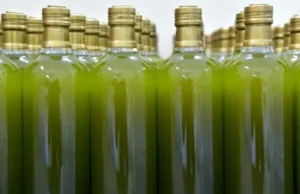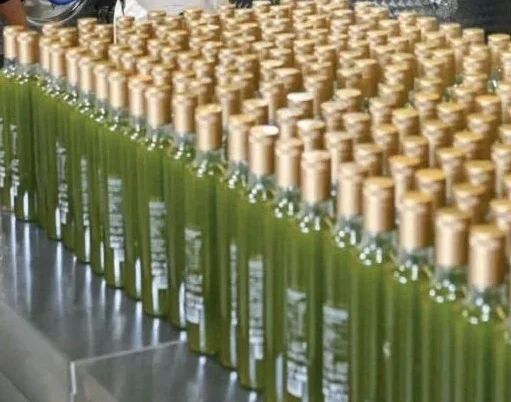“Dear Minister,
On the eve of the next olive oil campaign, we are forced to write to you and the other competent authorities to explain some commercial phenomena that have been characterizing the trade of Italian extra virgin olive oil in recent months.”
It begins with these words the heartfelt appeal letter from Italy addressed to Minister of Agriculture Francesco Lollobrigida and signed by CIA Italian Farmers of Puglia, Italia Olivicola, Oliveti Terra di Bari and 27 other large producer organizations, cooperatives, and associations across the entire Italian olive oil sector, with a very strong representation of the Apulian one.
In our country, very little extra virgin olive oil was produced in the last crop year, and prices during the harvest and pressing period—October 2024, January 2025—remained stable and fairly consistent across the various production areas. In our opinion, this was also ensured by the timely work carried out by inspection bodies during the harvesting phases. We unanimously acknowledged this, particularly with Undersecretary La Pietra, who strongly supported this extraordinary effort. The pressure and fears of these joint inspections have created a formidable obstacle for dishonest operators to engage in illegal activities (false olive purchase invoices and/or illegal imports of bulk oil). Unfortunately, once the extraordinary inspections were over, in our opinion, illegal activities have resumed as much as, if not more than, before. We would like to bring to your attention some points for reflection that may prove useful in finally eradicating this ancient system of relationships and business dealings that is blocking the development of our Italian olive growing industry.
And here are the points to be paid attention to.
1. Quotes: It’s been months that many Italian extra virgin olive oil exchanges they are made with a price range between 7 and 7,7 eurosIn the last two production seasons, the Italian system has never recorded such low values. How is it possible to record such low values in bulk oil sales? We’re told that purchase prices from oil mills and agricultural companies are even lower, between 5 and 6 euros. Is it possible that there are “farmers” or “oil mills” so unaware of commodity exchange prices that they sold their product below cost? Considering that our country has equipped itself with SIAN and electronic invoicing, very powerful analysis tools, it would be quite easy to sift through the large group of operators in the sector and select the sales and purchases made well below market prices and the relevant operators to better understand their dynamics and target control activities.

3. Territory: Once the lists have been selected, we believe it is fairly easy to compare the production of the agricultural companies supplying the mills, their yields, and their quality with those of colleagues in the same areas; we will most likely notice glaring disparities.
4. Transportation: Once the most “active and skilled” operators in below-cost selling have been selected, it might be useful to verify their transport activities (which drivers, which vehicles, and on which days), even by interviewing a few collaborators. We fear that if only we could cross-reference the telephone numbers of these collaborators, we might find several tractors, trailers, and numerous tankers traveling without drivers in our country. Still on the subject of transport, we might note that many of these shipments of this low-cost product were carried out either by the business owners themselves or by the same transport company, which also, coincidentally, has a significant presence abroad.
5. Finances: There is no doubt, Mr. Minister, that with such high prices, it was quite difficult, during the harvest and pressing periods, to generate such significant reserves and financial transactions as required by the oil’s value. For this reason, too, we believe that illicit activities have shifted to quieter periods, over time, to allow for guaranteed financial procurement and trading. On this front, too, we will most likely note how trade in this product “on sale” has been characterized by convenient and deferred payments.
6. Operators: Still on the subject of skill and super-ability, we would most likely discover that the most competitive operators with skyrocketing turnover this year have a very limited, almost non-existent, company organization, with structures, equipment, and buildings much more similar to a workshop than to an oil company.
“We are writing to you, Mr. Minister – concludes the letter – Because we believe the sector is under severe attack, not only in terms of agricultural workers’ income, but also in the complexity of its supply chain and its market presence. If we continue to allow no qualitative difference between a bottle of labeled Italian olive oil and one of EU or non-EU olive oil, we will very soon lose all the market share gained over decades of activity, with enormous damage to the entire supply chain and to our country. We ask you and the Undersecretary to undertake further extraordinary measures because we are convinced that, given the gap in prices for Italian and foreign olive oils this season, it is possible to defeat this group of criminals this time and allow the vast majority of operators in the olive oil supply chain to seize the opportunities the market offers and revive one of the pearls of Made in Italy. We are equally convinced that, if we do not intervene immediately, this now well-established organization will create enormous commercial problems for the emerging olive oil industry.


Dining and Cooking